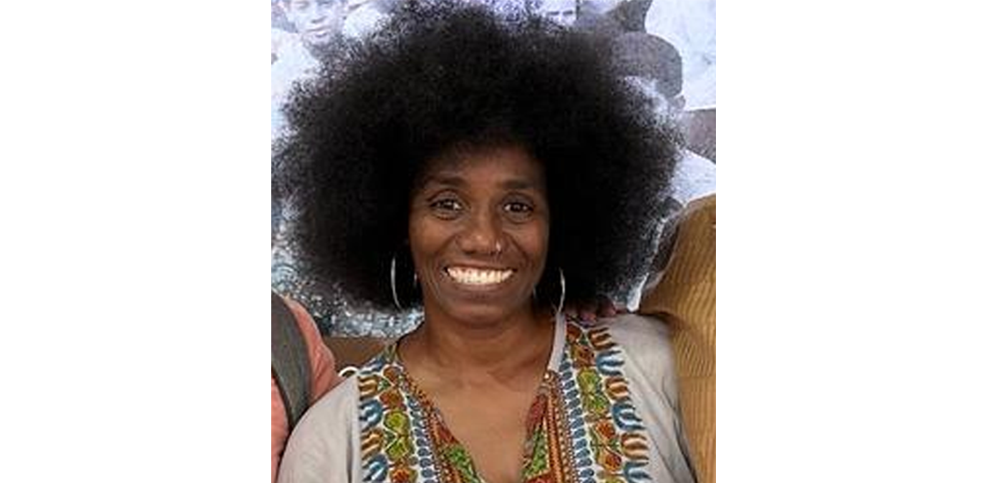by Sista YaYa Marin Coleman, Chairperson of UEF
BELIZE CITY, Thurs. Apr. 18, 2024
The Caribbean Community and Common Market (CARICOM) was created “to strengthen regional integration and enhance the social and economic development of the Caribbean nations” almost 51 years ago on August 1, 1973. In 2001, Irish billionaire businessman Denis O’Brien founded Digicel, a mobile telecommunications operator in Jamaica.
In 2014, heads of government of CARICOM, with no direct mandate from the majority of Afrikan descendants racialized as Black people from Caribbean countries, collectively approved the CARICOM Reparations Commission (CRC)’s proposed 10-Point Plan for Reparatory Justice. In October 2022, Denis O’Brien pitched a Repair proposal to CARICOM, and CARICOM accepted. The Repair Campaign claims to be “a social movement for reparatory justice in the Caribbean guided by the CARICOM Reparations Commission”. One of the actions of the Repair Campaign is to collaborate with “a research team working under the Sir
Arthur Lewis Institute of Social and Economic Studies (SALISES) at the University of the West Indies (UWI)” who will analyse, research, and identify “key areas for financial reparation, guided by the CARICOM Ten Point Plan for Reparatory Justice”.
Ah seh all ah dat fu seh, Belizeans, sleep wid unu own eye!
A team from the UWI was in Belize from April 11-16, 2024 for a private project to “interrogate, analyze, and provide comprehensive knowledge that provides critical information pertaining to socio-economic justice plans in targeted countries.” The generic description of Project Repair made no mention of the direct connection between this visit to Belize and O’Brien’s Repair Campaign, and CARICOM’s Ten Point Plan for Reparatory Justice.
The United Black Association for Development Educational Foundation (UEF) chose not to participate in the interview with the UWI team in Belize. In November 2022, UEF also refused to meet with a representative of the Digicel Group who was in Belize to meet with Belizeans about a reparations campaign. UEF recognized that both the CARICOM Ten Point Plan for Reparatory Justice and O’Brien’s Repair Campaign are not rooted in ‘Afrikan Reparations,’ which recognizes Afrikan epistemologies in the conceptualisation, goals and objectives of any repair plans, programmes and processes to remedy the wrongs of genocide, ethnocide, crimes against humanity and ecocide which have been done and continue to be done by Europeans (British, French, Dutch, Spanish, Portuguese) to our Afrikan ancestresses and ancestors and Afrikan people on the continent of Afrika, and in the Diaspora.
The continuous undemocratic practices of the CARICOM states and their CARICOM Reparations Commission to make independent, top-down decisions about us as descendants of Afrikan captives and prisoners of war who were also enslaved; doing so without genuine people’s participation from Afrikan Heritage Communities from the ground-up, thereby denying our participation rights as recognized by customary international law and without transparency, or accountability to Afrikan Heritage Communities as distinct peoples, undermines the generations of authentic social movement-building for Afrikan Reparations led by Afrikan people globally.
It is dishonest and disrespectful to the memory of our Afrikan ancestresses and ancestors for the Government of Belize and CARICOM to seek to usurp the dignity and agency of Afrikan heritage communities within Belize and the wider Caribbean region to gain resources by way of Reparations which should ultimately be ‘restituted’ to the communities and lineages of Afrikan heritage communities who were and continue to be victimized and impacted by the harmful enduring consequences of the Maangamizi.
(AMANDALA Ed. Note: According to Wikipedia, “Maangamizi: The Ancient One is a 2001 American /Tanzanian drama film directed by Martin Mhando and Ron Mulvihill and executive produced by Jonathan Demme. It premiered at the Pan African Film Festival and has played in over 55 film festivals worldwide. It was the Tanzanian submission for the Academy Award for Best foreign language film, the first film to be submitted from that country, but was not nominated.” Wikipedia further states, “Maangamizi: The Ancient One won the Golden Dhow at the 1998 Zanzibar International Film Festival. It won the Paul Robeson Award for Best Feature at the Newark Black Film Festival.” According to slaveryremembrance.org, “The African Holocaust /Transatlantic Slave Trade / Maangamizi are all terms used to describe the enslavement of African people which spanned over 400 years …”)

